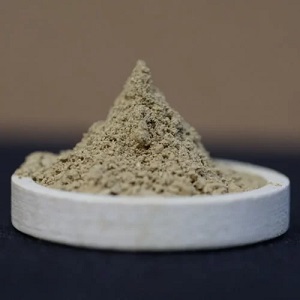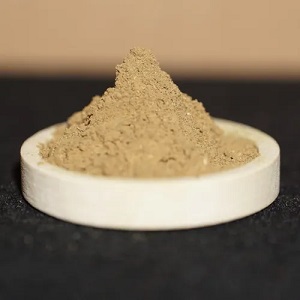With the controversies surrounding it, there has been an effort to regulate the trade and consumption of ketum in recent years. Wondering just who can use Kratom now?, you’re at the right place. This article discusses in detail all the legal requirements surrounding who can use Kratom along with the herb’s key demographic.

So Who Can Use Kratom?
● Age Requirements
When it comes to age, the question of ‘Who can use Kratom?’ has many answers. This is because the herb is not regulated on the federal level in the United States, meaning each state has its own laws on what age you have to be to buy kratom. Some states require you to be at least 18 while others have no minimum age and still others have banned the herb altogether.
Alaska, California, Colorado, Connecticut, Delaware, Florida, Hawaii, Idaho, Iowa, Kansas, Kentucky, Louisiana, Maine, Maryland, Massachusetts, Michigan, Mississippi, Missouri, Montana, Nebraska, New Jersey, New Mexico, North Carolina, North Dakota, Ohio, Oklahoma, Oregon, Pennsylvania, South Carolina, South Dakota, Texas, Virginia, Washington, West Virginia, and Wyoming all lack any official age restriction for the purchase of ketum.
In Arizona, Georgia, Illinois, Minnesota, Nevada, New Hampshire, New York, and Utah you need to be at least 18 years of age to buy ketum. While in Tennessee, this minimum age requirement is increased to 21. Florida has also been considering laws setting a minimum age limit of 21 years for the purchase and use of ketum.
● Area Laws
Unfortunately, ketum is not legal to use in every country, limiting the demographic of who can use kratom. The herb is banned in many countries like Malaysia, Myanmar, New Zealand, Denmark, Ireland, Poland, Sweden, etc. And while not illegal on the federal level in the United States, some states do ban its use.
The herb is not legal for sale, possession, or consumption in the following U.S. states:
- Alabama: Schedule 1 controlled substance since May 10, 2016.
- Arkansas: Controlled substance since February 2016.
- Indiana: Considered synthetic drug and banned.
- Rhode Island: Schedule I controlled substance since 2017.
- Wisconsin: Ketum’s primary alkaloids classified as Schedule I and banned.
- Vermont: Banned due to ketum-related hospitalizations and a lack of safe use.
Other than these, you can also get in trouble for trading, possessing, or using ketum in San Diego, Sarasota County, and Jerseyville due to local ordinances.
● Medical Conditions
While not FDA approved, ketum is generally considered to be a pretty safe drug. The herb is generally consumed as a powder using the Toss and Wash method and has no substantial side-effects in low doses. Still, there are some medical conditions in which ketum should not be used. These are discussed below:
- Pregnancy: Ketum has the potential to be unsafe for pregnant women, especially when taken via the mouth. Unborn babies exposed to Ketum during pregnancy display withdrawal symptoms after birth, requiring special treatment for the addiction.
- Breast-feeding: Much like during pregnancy, consuming ketum when breast-feeding can lead to the transfer of addictive substances to the baby via the mother’s milk. There isn’t any research proving or disapproving this, but it’s better to be safe than sorry.
- Alcohol dependence: People with alcohol dependence should be discouraged from using ketum. This is because alcoholics who use ketum display an increased risk of suicide and self-harm.
- Mental disorders: While often used in cases of stress and anxiety, Mitragyna is not recommended for those with diagnosed mental disorders. It can worsen existing mental disorders and is often linked to a higher risk of suicide.
- Epilepsy: Ketum use is contraindicated in those diagnosed with epilepsy. This is because ketum stimulates certain receptors in the brain, resulting in an increased risk of seizures.
- Heart conditions: Ketum is a stimulatory substance that can increase the heartbeat. As such, those with pre-existing heart conditions should stay away from this drug.
Kratom Key Demographic
The percentage of ketum use has been found to be higher among employed young White males and females who are at least high school educated and above the poverty line. Lifetime SUD treatment and nonmedical opioid use are also significant predictors. All in all, this paints the Kratom Key Demographic as “White middle-class suburban”.
Surveys show that ketum is primarily used in the United States as a way to self-treat anxiety, depression, pain, fatigue, and SUD (substance use disorder) symptoms. The drug is used more commonly among demographic groups targeted by media outlets promoting ketum use. And as the herb is well-known as a short- and long-term full opioid agonist substitute, its use is greater in regions where addiction to prescription opioids is at an all-time high.
In fact, a history of lifetime nonmedical opioid use is the strongest predictor of ketum use, associated with an up to five times greater likelihood of past-year Mitragyna use.

1. Can federal employees use Ketum?
Since there are no laws banning ketum on the federal level, it is completely legal for civilian federal employees to use it. Unfortunately, this doesn’t apply to military federal employees. Due to its categorization as a mind-altering substance, ketum is strictly prohibited for military personnel.
2. Can you be fired for taking Ketum?
As of now, most employers don’t conduct a specific drug test for ketum. You should be fine as long as your state allows it, and you’re consuming the herb in safe amounts. Still, make sure to check who can use Kratom according to your state laws to avoid any unsavory surprises.
3. What can I use Ketum for?
Most people in the United States use Ketum as a way to self-treat anxiety, depression, pain, fatigue, and substance use disorder symptoms. The herb leaves have also been traditionally used for cough, diarrhea, skin infection, pain relief, etc.
4. Can truck drivers use Ketum?
Out of all the people who can use kratom in the United States, commercial truck drivers are unfortunately not one of them. The opioid-like supplement is not approved by the FDA, and as such, banned for use by commercial drivers.
5. Who can use Kratom outside the U.S.?
Each country has its own laws regarding who can use Kratom, although the herb is outright banned in countries like Malaysia, Myanmar, New Zealand, Denmark, Ireland, Poland, Sweden, etc.


Latest from our blog
Please Read….This is Urgent
In loving memory of Ryan, a special individual who recently passed away, we honor his [...]
Damiana Exposed: Special Look At Turnera diffusa (2023)
Damiana Exposed: Special Look At Turnera diffusa (2023) Damiana is a wild shrub native to [...]
Kanna: A New Look At An Exciting Mood Booster (2023)
What is kanna? Some say the botanical has similar effects to MDMA, or ecstasy. Others [...]
Blue Lotus Flower: Unveiling Its Mystical & Therapeutic Powers
To cut to the chase and pickup potent 25x blue lotus extract today while enjoying [...]
Red Bubble Kratom Extraction: A Comprehensive Guide
As a kratom enthusiast, have you ever wondered if there was a method for getting [...]
Aug
Maeng Da Kratom 101: Accurate Info You Can Trust
Maeng Da kratom may be the most popular kratom strain on the market today. The [...]
Aug